
ActiveX is a deprecated software framework created by Microsoft that adapts its earlier Component Object Model (COM) and Object Linking and Embedding (OLE) technologies for content downloaded from a network, particularly from the World Wide Web. Microsoft introduced ActiveX in 1996. In principle, ActiveX is not dependent on Microsoft Windows operating systems, but in practice, most ActiveX controls only run on Windows. Most also require the client to be running on an x86-based computer because ActiveX controls contain compiled code.
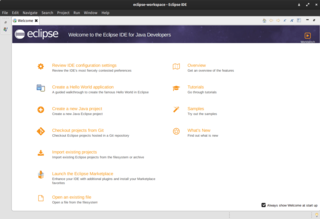
Eclipse is an integrated development environment (IDE) used in computer programming. It contains a base workspace and an extensible plug-in system for customizing the environment. It is the second-most-popular IDE for Java development, and, until 2016, was the most popular. Eclipse is written mostly in Java and its primary use is for developing Java applications, but it may also be used to develop applications in other programming languages via plug-ins, including Ada, ABAP, C, C++, C#, Clojure, COBOL, D, Erlang, Fortran, Groovy, Haskell, JavaScript, Julia, Lasso, Lua, NATURAL, Perl, PHP, Prolog, Python, R, Ruby, Rust, Scala, and Scheme. It can also be used to develop documents with LaTeX and packages for the software Mathematica. Development environments include the Eclipse Java development tools (JDT) for Java and Scala, Eclipse CDT for C/C++, and Eclipse PDT for PHP, among others.
The Association for Progressive Communications (APC) is an international network of organizations that was founded in 1990 to provide communication infrastructure, including Internet-based applications, to groups and individuals who work for peace, human rights, protection of the environment, and sustainability. Pioneering the use of ICTs for civil society, especially in developing countries, APC were often the first providers of Internet in their member countries.

Processing is a free graphical library and integrated development environment (IDE) built for the electronic arts, new media art, and visual design communities with the purpose of teaching non-programmers the fundamentals of computer programming in a visual context.
Technological literacy is the ability to use, manage, understand, and assess technology. Technological literacy is related to digital literacy in that when an individual is proficient in using computers and other digital devices to access the Internet, digital literacy gives them the ability to use the Internet to discover, review, evaluate, create, and use information via various digital platforms, such as web browsers, databases, online journals, magazines, newspapers, blogs, and social media sites.
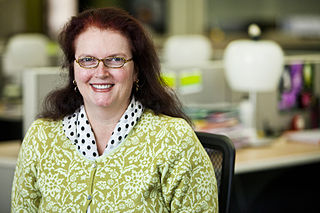
Danese Cooper is an American programmer, computer scientist and advocate of open source software.
The Classmate PC, formerly known as Eduwise, is Intel's entry into the market for low-cost personal computers for children in the developing world. It is in some respects similar to the One Laptop Per Child (OLPC) trade association's Children's Machine (XO), which has a similar target market. Although made for profit, the Classmate PC is considered an Information and Communication Technologies for Development project (ICT4D). Introduced in 2006, the device falls into the then popular category of netbooks.

Microsoft Silverlight is a discontinued application framework designed for writing and running rich internet applications, similar to Adobe's runtime, Adobe Flash. While early versions of Silverlight focused on streaming media, later versions supported multimedia, graphics, and animation, and gave support to developers for CLI languages and development tools. Silverlight was one of the two application development platforms for Windows Phone, but web pages using Silverlight did not run on the Windows Phone or Windows Mobile versions of Internet Explorer, as there was no Silverlight plugin for Internet Explorer on those platforms.
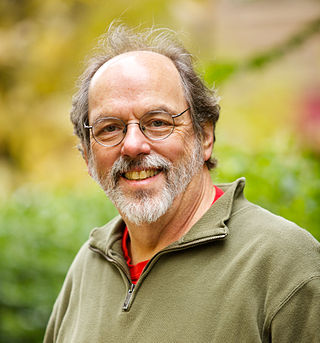
The history of wikis began in 1994, when Ward Cunningham gave the name "WikiWikiWeb" to the knowledge base, which ran on his company's website at c2.com, and the wiki software that powered it. The wiki went public in March 1995, the date used in anniversary celebrations of the wiki's origins. c2.com is thus the first true wiki, or a website with pages and links that can be easily edited via the browser, with a reliable version history for each page. He chose "WikiWikiWeb" as the name based on his memories of the "Wiki Wiki Shuttle" at Honolulu International Airport, and because "wiki" is the Hawaiian word for "quick".
Convera was formed in December 2000 by the merger of Intel's Interactive Services division and Excalibur Technologies Corporation. Until 2007, Convera's primary focus was the enterprise search market through its flagship product, RetrievalWare, which is widely used within the secure government sector in the United States, UK, Canada and a number of other countries. Convera sold its enterprise search business to FAST Search & Transfer in August 2007 for $23 million, at which point RetrievalWare was officially retired. Microsoft Corporation continues to maintain RetrievalWare for its existing customer base.
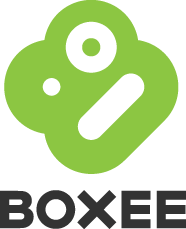
Boxee was a cross-platform freeware HTPC software application with a 10-foot user interface and social networking features designed for the living-room TV. It enabled its users to view, rate and recommend content to their friends through many social network services and interactive media related features.
U-Prove is a free and open-source technology and accompanying software development kit for user-centric identity management. The underlying cryptographic protocols were designed by Dr. Stefan Brands and further developed by Credentica and, subsequently, Microsoft. The technology was developed to allow internet users to disclose only the minimum amount of personal data when making electronic transactions as a way to reduce the likelihood of privacy violations.
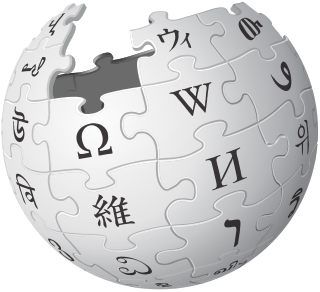
The following outline is provided as an overview of and a topical guide to Wikipedia:
Mozilla is a free software community founded in 1998 by members of Netscape. The Mozilla community uses, develops, publishes and supports Mozilla products, thereby promoting exclusively free software and open standards, with only minor exceptions. The community is supported institutionally by the non-profit Mozilla Foundation and its tax-paying subsidiary, the Mozilla Corporation.
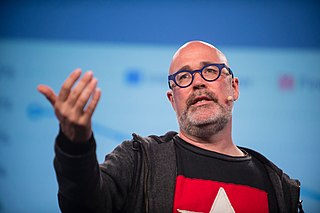
Mark Surman is a Canadian open internet activist and the president and executive director of the Mozilla Foundation. He is a leading advocate for trustworthy AI, digital privacy, and the open internet. Before joining the Mozilla Foundation, Mark spent more than 15 years leading organizations and projects promoting the use of the internet and open source for social empowerment in many countries around the world.

The University of AMIKOM Yogyakarta is a private IT college in Sleman Regency, Special Region of Yogyakarta, Indonesia. The college was established on December 29, 1992, under the auspices of the Yogyakarta AMIKOM Foundation. It has 2 diploma programs, 13 undergraduate programs, and 1 postgraduate program; all are accredited. The university concentrates on efforts to become the world's leading university in the field of the creative economy based on entrepreneurship. The university currently has more than 11,000 active students, and has more than 3,000 new students every year.

Korrie Layun Rampan was an Indonesian novelist, short story writer, poet, literary critic, journalist, and politician.
Open source is source code that is made freely available for possible modification and redistribution. Products include permission to use the source code, design documents, or content of the product. The open-source model is a decentralized software development model that encourages open collaboration. A main principle of open-source software development is peer production, with products such as source code, blueprints, and documentation freely available to the public. The open-source movement in software began as a response to the limitations of proprietary code. The model is used for projects such as in open-source appropriate technology, and open-source drug discovery.

Sudjiran Resosudarmo (1920–1985) was an Indonesian geographer and teacher. He was the rector of Institut Keguruan dan Ilmu Pendidikan (IKIP) Jakarta, now known as the State University of Jakarta, from 1980 till 1984.












